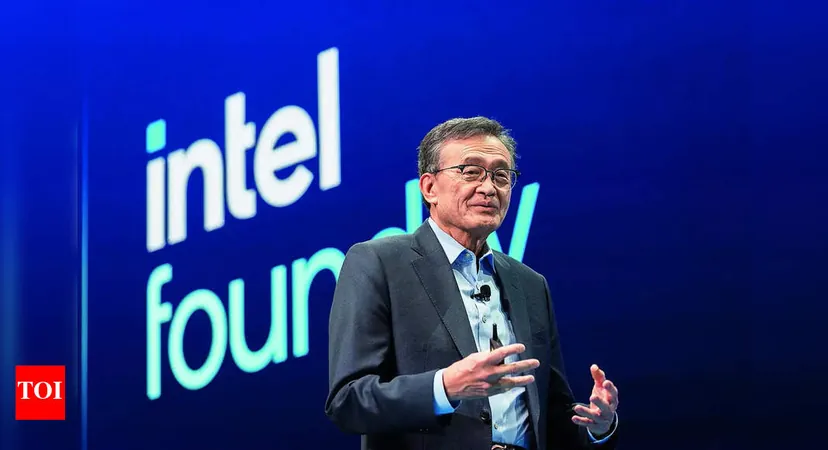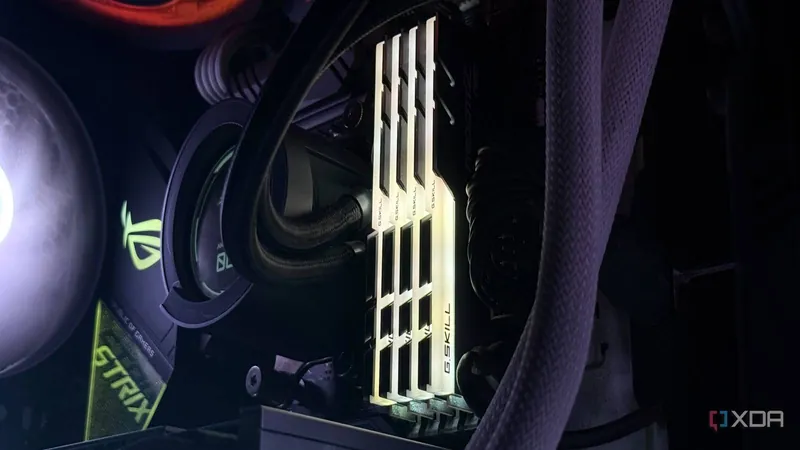
Intel's Bold Moves: Job Cuts and a 4-Day Office Push by 2025!
2025-08-04
Author: Jia
In a decisive shift aimed at revitalizing its operations, Intel's CEO, Lip-Bu Tan, has unveiled a transformative strategy that includes a sweeping 15% reduction in the workforce alongside a new four-day office policy. Set to fully roll out by September 2025, this initiative symbolizes a significant restructuring effort as Intel seeks to reclaim its competitive edge in the semiconductor realm.
The New Office Mandate: A Step Towards Collaboration
Tan's memo, dispatched to employees on July 24, outlines not only the extensive job cuts affecting about 15,000 positions but also the planned return to a more traditional office environment. By September, all Intel locations are expected to be equipped to operate at maximum capacity, enforcing a four-day workweek that aims to sparking collaboration and enhancing decision-making processes. This policy shift follows a trend among leading tech companies, with Amazon and Salesforce recently adopting similar mandates.
Restructuring for Success: More Than Just Office Changes
The timing of the job cuts and the new office requirements underscores a broader transformation strategy at Intel. The company has streamlined management, reducing layers by an impressive 50% as part of its Q2 strategy. By the end of 2025, Intel anticipates trimming its workforce down to around 75,000 globally, employing a combination of layoffs and natural attrition.
Scaling Back: Global Expansion Plans Hit the Brakes
In addition to the workforce reduction, Intel is reassessing its global expansion strategy. The company has recently canceled projects in Germany and Poland and is consolidating operations from Costa Rica to locations in Vietnam and Malaysia. This tactical retreat is part of Intel's broader mission to enhance operational efficiency and focus on core markets.
Lip-Bu Tan's firm stance on reshaping Intel's work culture reflects his belief in vibrant, collaborative work environments. He has previously criticized the inconsistent adherence to the company's hybrid work model, asserting that in-person interactions foster quicker and more effective decision-making.
Stay tuned as Intel navigates this pivotal moment in its history, shedding outdated practices and gearing up for a competitive comeback in the tech titan's ongoing battle for market dominance.




 Brasil (PT)
Brasil (PT)
 Canada (EN)
Canada (EN)
 Chile (ES)
Chile (ES)
 Česko (CS)
Česko (CS)
 대한민국 (KO)
대한민국 (KO)
 España (ES)
España (ES)
 France (FR)
France (FR)
 Hong Kong (EN)
Hong Kong (EN)
 Italia (IT)
Italia (IT)
 日本 (JA)
日本 (JA)
 Magyarország (HU)
Magyarország (HU)
 Norge (NO)
Norge (NO)
 Polska (PL)
Polska (PL)
 Schweiz (DE)
Schweiz (DE)
 Singapore (EN)
Singapore (EN)
 Sverige (SV)
Sverige (SV)
 Suomi (FI)
Suomi (FI)
 Türkiye (TR)
Türkiye (TR)
 الإمارات العربية المتحدة (AR)
الإمارات العربية المتحدة (AR)